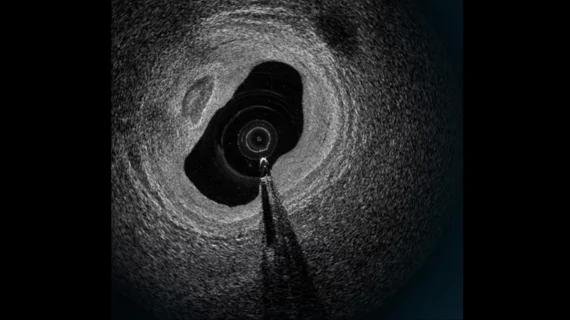SpectraWAVE raises $50M for FDA-cleared intravascular imaging technology
SpectraWave, a Massachusetts-based imaging company focused on treatments for patients with coronary artery disease (CAD), has closed a $50 million funding round. Johnson & Johnson Innovation led the round, and other participants included S3 Ventures, Lumira Ventures, SV Health Investors, Deerfield Management, NovaVenture and Heartwork Capital.
The new funds are expected to go toward fine-tuning and improving the availability of SpectraWave’s HyperVue Imaging System, which first gained U.S. Food and Drug Administration clearance in 2023.
The HyperVue system uses both DeepOCT and near infrared spectroscopy (NIRS) imaging to help guide stent placement during interventional cardiology procedures in the cath lab. Users control both image acquisition and image review as they carry out the procedure.
“Increasing both the capabilities and the ease of use of intravascular imaging systems is now critical to expand the use of imaging and improve care for these patients,” Eman Namati, PhD, CEO of SpectraWAVE, said in a statement. “That is our mission with HyperVue—simpler, faster, and better imaging to drive optimized stenting procedures for improved patient outcomes. The reception to the product during our initial U.S. launch has been fantastic, and this financing, supported by leading medtech investors, will support our commercial expansion to bring HyperVue to more patients.”
Namati added that SpectraWAVE is presently developing a wire-free physiology software add-on for the HyperVue system that will give heart teams the ability track pressure drops in the coronaries.
“This is an important step in our journey to enhance the clinical decision-making for these patients and establish an anchor point for future innovation in the cath lab,” he said.

